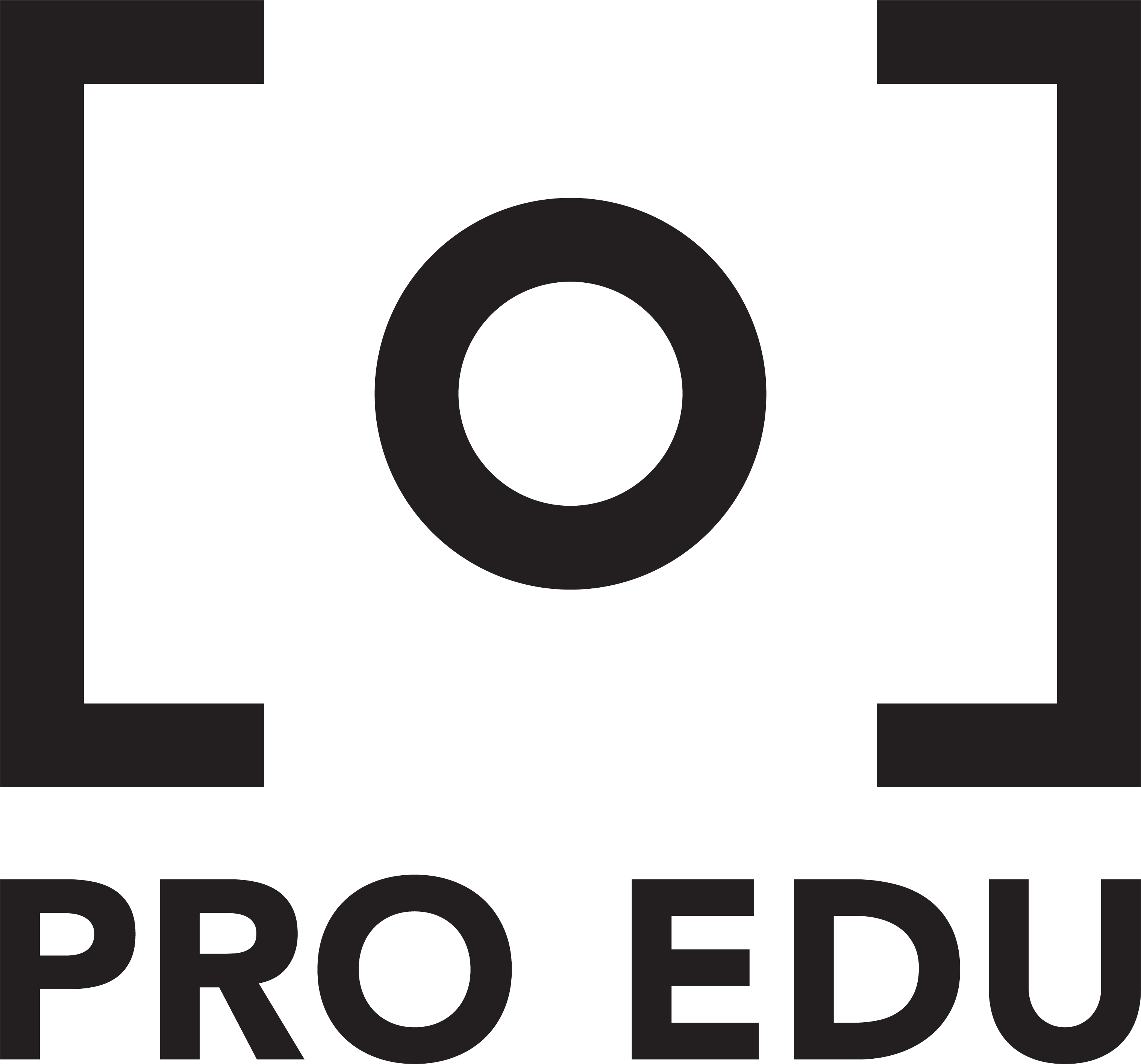Photography is more than just capturing beautiful images. It's a business that requires strategic planning, financial acumen, and marketing savvy. Many aspiring photographers find themselves struggling with the business aspects of their craft, unsure how to turn their passion into a profitable venture.
PRO EDU offers comprehensive guidance on mastering the business side of photography, helping photographers establish successful and sustainable careers. Their courses cover essential topics like brand development, financial management, and client relationship building. By combining artistic talent with solid business practices, photographers can create thriving enterprises that allow them to focus on what they love most – creating stunning visual stories.
We understand that navigating the complexities of running a photography business can be overwhelming. That's why we've designed our programs to provide practical, actionable advice that can be immediately implemented. From tax preparation to marketing strategies, our goal is to equip photographers with the tools they need to succeed in a competitive industry.
Key Takeaways
- Combining artistic skills with business acumen is crucial for photography success
- Proper financial management and marketing strategies are essential for sustainable growth
- Continuous learning and adapting to industry trends help photographers stay competitive
Establishing Your Brand in Photography
Crafting a distinctive brand identity is crucial for photographers to stand out in a competitive industry. A strong brand communicates your unique style and attracts ideal clients.
Defining Your Creative Vision
Your creative vision forms the foundation of your photography brand. We recommend identifying your artistic strengths and passions. What subjects or styles inspire you most? Think about the lasting image or feeling you want people to associate with your work.
Develop a consistent aesthetic across your portfolio. This could involve a signature editing style, preferred lighting techniques, or recurring themes. Your vision should align with your target market's preferences.
Consider creating a mission statement that encapsulates your photographic philosophy. This will guide your branding decisions and help potential clients understand your unique approach.
Building a Professional Website
A polished website serves as your digital storefront in the photography industry. We suggest choosing a platform like WordPress or Wix that offers customizable templates suited for visual portfolios.
Showcase your best images prominently on your homepage. Organize your work into clear categories that reflect your specialties. Include an "About" page that tells your story and conveys your brand personality.
Ensure your website design reflects your brand's visual identity. Use consistent colors, fonts, and graphics that complement your photographic style. A cohesive look reinforces your brand image.
Incorporate client testimonials and a clear pricing structure to build trust. Make it easy for potential clients to contact you through prominent call-to-action buttons and contact forms.
The Mechanics of Running a Photography Business
Running a successful photography business requires more than just creative talent. We'll explore key aspects of client management and account handling that form the backbone of a thriving enterprise.
Client Acquisition and Support
Attracting and retaining clients is crucial for any photography business. We recommend developing a strong online presence through a professional website and active social media accounts. Showcase your best work to draw potential clients.
Networking is invaluable. Attend industry events, collaborate with other professionals, and seek referrals from satisfied customers. Word-of-mouth remains a powerful tool in our field.
Once you've secured clients, provide exceptional support. Be responsive to inquiries and maintain clear communication throughout projects. We suggest using a client management system to track interactions and deadlines.
Offer a seamless experience from initial contact to final delivery. This includes easy-to-understand contracts, transparent pricing, and timely delivery of high-quality images.
Effective Account Management
Robust account management is essential for financial stability and growth. We recommend implementing a user-friendly system for account sign-ins, allowing clients to access their purchases and billing information easily.
Utilize software that integrates client data, project details, and financial transactions. This streamlines operations and provides a comprehensive view of each account.
Regular account reviews help identify opportunities for upselling or cross-selling services. We suggest scheduling periodic check-ins with long-term clients to discuss their evolving needs.
Efficient billing practices are crucial. Offer multiple payment options and send invoices promptly. Consider automating recurring payments for retainer clients to ensure steady cash flow.
Financial Fundamentals for Photographers
Managing the financial aspects of a photography business is crucial for long-term success. We'll explore effective pricing strategies and essential budgeting practices to help photographers build a solid financial foundation.
Pricing Strategies for Services
Determining the right pricing for photography services requires careful consideration. We recommend using a cost-plus pricing model as a starting point. This involves calculating all expenses associated with a shoot and adding a desired profit margin.
Factors to consider when setting prices include:
• Equipment costs • Time spent (shooting and editing) • Travel expenses • Overhead costs (studio rent, software subscriptions) • Your skill level and experience
It's essential to research market rates in your area to ensure competitive pricing. We advise offering tiered pricing packages to cater to different client needs and budgets.
Budgeting and Financial Planning
Effective budgeting is key to maintaining a healthy photography business. We recommend creating both short-term and long-term financial plans.
Key components of a photography business budget:
- Income projections
- Fixed expenses (rent, insurance, equipment loans)
- Variable costs (travel, props, assistant fees)
- Marketing and advertising expenses
- Savings for taxes and equipment upgrades
Regular financial review is crucial. We suggest setting aside time each month to analyze income and expenses, adjust forecasts, and identify areas for improvement. This practice helps ensure long-term viability and informed decision-making in your photography business.
Marketing and Promotions
Effective marketing and promotions are crucial for photography businesses to attract clients and grow their brand. We'll explore key strategies for online advertising and social media engagement that can help photographers reach their target audience.
Online Advertising
Online advertising offers powerful tools for photographers to showcase their work and reach potential clients. We recommend using platforms like Google Ads and Facebook Ads to target specific demographics and interests. Create eye-catching visual ads featuring your best work to grab attention.
Consider using retargeting campaigns to re-engage visitors who've shown interest in your services. It's important to track your ad performance and adjust strategies as needed. A/B testing different ad creatives and copy can help optimize your campaigns.
Don't forget about local SEO. Optimize your website and online profiles for local searches to attract nearby clients. PRO EDU's digital marketing course offers in-depth guidance on these topics.
Social Media Engagement
Social media platforms are invaluable for photographers to build their brand and connect with potential clients. We suggest focusing on visual platforms like Instagram and Pinterest to showcase your portfolio.
Consistency is key in social media marketing. Develop a posting schedule and stick to it. Use relevant hashtags to increase visibility and engage with your followers by responding to comments and messages promptly.
Consider running contests or giveaways to boost engagement and attract new followers. Collaborate with other photographers or influencers in your niche to expand your reach.
We recommend using social media management tools to schedule posts and analyze your performance. PRO EDU's courses offer expert insights on leveraging social media for your photography business. Join now to access these valuable resources.
Mastering Photography Skills
Developing advanced photography techniques is crucial for success in commercial and product photography. We'll explore key skills and methods to elevate your work.
Techniques in Commercial Photography
Commercial photography demands a blend of technical prowess and creative vision. We recommend mastering lighting techniques, as they're fundamental to creating impactful images. Experimenting with different lighting setups helps achieve desired moods and highlight product features effectively.
Composition skills are equally important. We advise practicing the rule of thirds, leading lines, and symmetry to create visually appealing shots. These techniques help draw viewers' attention to key elements in the frame.
Post-processing proficiency is another vital skill. We suggest learning advanced editing techniques in software like Adobe Photoshop and Lightroom. This allows us to enhance colors, adjust contrast, and refine details to produce polished final images.
Advancing in Product Photography
Product photography requires attention to detail and technical precision. We find that mastering macro photography techniques is essential for capturing intricate product details. This involves using specialized lenses and understanding depth of field control.
Styling and prop usage are crucial skills in product photography. We recommend developing an eye for arrangement and learning how to use props effectively to enhance product presentation without overshadowing the main subject.
Handling challenging materials like glass, metals, and reflective surfaces is another important aspect. We advise practicing techniques to minimize unwanted reflections and showcase these materials' unique properties.
Consistency is key in product photography, especially for e-commerce. We suggest creating standardized workflows and developing skills in batch editing to maintain a cohesive look across product lines.
Building Client Relationships and Networking
Strong client relationships and effective networking are essential for photography business success. These skills help create a loyal client base and expand professional opportunities.
Client Retention Techniques
Building strong client relationships requires trust and professionalism. We must consistently deliver high-quality work and meet deadlines to establish reliability. Clear communication is key - keep clients informed throughout projects and address concerns promptly.
Personalized service helps clients feel valued. We can remember their preferences and offer tailored recommendations for future sessions. Follow-up after projects shows we care about their satisfaction beyond the transaction.
Offering exceptional service can include small gestures like thank-you notes or preview galleries. These touches enhance the client experience and encourage repeat business.
Networking for Growth
Networking acts as a catalyst for business growth in photography. We can attend industry events, join professional associations, and participate in online communities to connect with peers and potential clients.
Collaboration with other photographers or related professionals can lead to referrals and new opportunities. We should be open to sharing knowledge and resources within our network.
Social media platforms are valuable for showcasing our work and engaging with our audience. Regular, authentic interactions can help build a strong online presence and attract new clients.
Local business networking events provide opportunities to meet potential clients face-to-face. We can offer our services to other businesses, creating mutually beneficial partnerships.
Legal Considerations
Navigating the legal aspects of photography is crucial for protecting our work and business. We'll explore key legal considerations that every photographer should understand to operate professionally and ethically.
Copyright and Contracts
Copyright laws automatically protect our original photographs from the moment we create them. We retain exclusive rights to reproduce, distribute, and display our images. It's essential to register our copyrights with the U.S. Copyright Office for additional legal protections.
Contracts are vital for defining the terms of our photography services. We should include:
- Usage rights granted to clients
- Payment terms and schedules
- Delivery timelines
- Cancellation policies
Clear, well-written contracts help prevent misunderstandings and protect our interests. It's wise to have a lawyer review our standard contracts to ensure they're legally sound and comprehensive.
Dealing with Infringement Issues
When we discover unauthorized use of our images, we have several options to address infringement:
- Send a cease and desist letter
- Issue a DMCA takedown notice
- Negotiate a licensing fee
- Pursue legal action
Documenting infringement is crucial. We should capture screenshots and gather evidence of unauthorized use. For serious cases, consulting with an intellectual property attorney can help us determine the best course of action.
Watermarking our images and using reverse image search tools can help us detect infringement. By staying vigilant and taking swift action, we can protect our work and maintain the value of our photography.
Continuing Education and Professional Development
Professional photographers must stay updated with industry trends and techniques. Continuous learning enhances our skills and keeps us competitive in the ever-evolving field of photography.
Workshops and Seminars
In-person workshops and seminars offer invaluable opportunities for hands-on learning and networking. We can attend specialized sessions on lighting techniques, post-processing, or niche genres like product photography. These events often feature industry experts sharing their insights and practical tips.
Many photography organizations host annual conferences where we can immerse ourselves in multiple workshops over several days. These gatherings also provide chances to test new equipment and connect with fellow professionals.
Local photography clubs and camera stores frequently organize smaller workshops, which can be more accessible and budget-friendly options for ongoing education.
Online Resources and Courses
The digital age has made learning more convenient than ever. PRO EDU offers a wide range of online tutorials covering various aspects of commercial photography. These courses allow us to learn at our own pace and revisit complex topics as needed.
We can access free educational content through photography blogs, YouTube channels, and podcasts. These platforms often feature tips, gear reviews, and industry news to keep us informed.
Online forums and social media groups dedicated to photography provide spaces for peer-to-peer learning and problem-solving. We can share our work, seek feedback, and learn from others' experiences in these communities.
Frequently Asked Questions
Photographers starting and growing their businesses face common challenges. We'll address key questions about business fundamentals, marketing strategies, legal considerations, pricing, client acquisition, and leveraging social media for success.
What are the essential steps to start a photography business?
Starting a photography business requires careful planning and execution. We recommend creating a comprehensive business plan that outlines your goals, target market, and financial projections.
Registering your business, obtaining necessary licenses, and setting up accounting systems are crucial first steps. Investing in quality equipment and building a strong portfolio are also essential for attracting clients.
How can photographers effectively market their services?
Effective marketing is vital for photography business success. We suggest developing a professional website showcasing your best work and clearly stating your services.
Networking with other professionals in complementary fields can lead to valuable referrals. Utilizing social media platforms to share your work and engage with potential clients is also highly effective.
What legal considerations should photographers be aware of?
Photographers must navigate various legal aspects to protect their business. We advise creating clear contracts for all client engagements, outlining terms, deliverables, and usage rights.
Understanding copyright laws and licensing agreements is crucial for protecting your work and maximizing revenue potential. Obtaining proper insurance coverage is also essential to mitigate risks.
How can photographers price their services competitively yet profitably?
Pricing photography services requires balancing market competitiveness with profitability. We recommend researching local market rates and considering your experience level when setting prices.
Factor in all costs, including equipment, time, editing, and overhead. Offer tiered packages to cater to different client needs and budgets. Regularly review and adjust your pricing strategy as your skills and demand grow.
What are key strategies for building a strong client base in photography?
Building a solid client base is crucial for long-term success. We suggest focusing on delivering exceptional quality and customer service to encourage repeat business and referrals.
Networking at industry events and collaborating with other professionals can expand your reach. Implementing a referral program can incentivize satisfied clients to recommend your services.
Can social media significantly impact the growth of a photography business?
Social media can indeed have a substantial impact on photography business growth. We find platforms like Instagram and Pinterest particularly effective for showcasing visual work.
Consistent posting, engaging with followers, and using relevant hashtags can increase visibility. Sharing behind-the-scenes content and photography tips can help build a loyal following and establish your expertise in the field.












